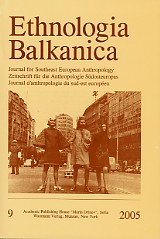Urban Economics in a Rural Manner: Family Economizing in Socialist Serbian Cities
Urban Economics in a Rural Manner: Family Economizing in Socialist Serbian Cities
Author(s): Miloš MatićSubject(s): Anthropology
Published by: LIT Verlag
Keywords: rural-urban migration; Belgrade; Valjevo; Pirot; Jagodina; kinship relations;
Summary/Abstract: After WW I and especially after WW II, urban Serbia experienced a high level of in-migration with many peasants moving to nearby or distant cities or towns. The migrants brought with them many elements of the rural way of thinking, including ideas on economy in general and economic aspects of everyday life. On the other hand, after WW II, the new communist regime imposed specific legal changes regulating private property. The socialist system thus had a strong impact on economic life not only at state level, but also at the level of individuals and households. Based on the rural way of thinking and the socialist economic and property system, a specific form of economic thinking and behaviour developed in Serbian cities: an informal economy which was a mix of elements of bartering and monetary economy. The paper discusses the economic behaviour in the so-called “wild” (unplanned and unorganized) settlements and the role of kinship relations in the everyday economy of the rural-urban migrant families.
Journal: Ethnologia Balkanica
- Issue Year: 2005
- Issue No: 09
- Page Range: 131-149
- Page Count: 19
- Language: English
- Content File-PDF

